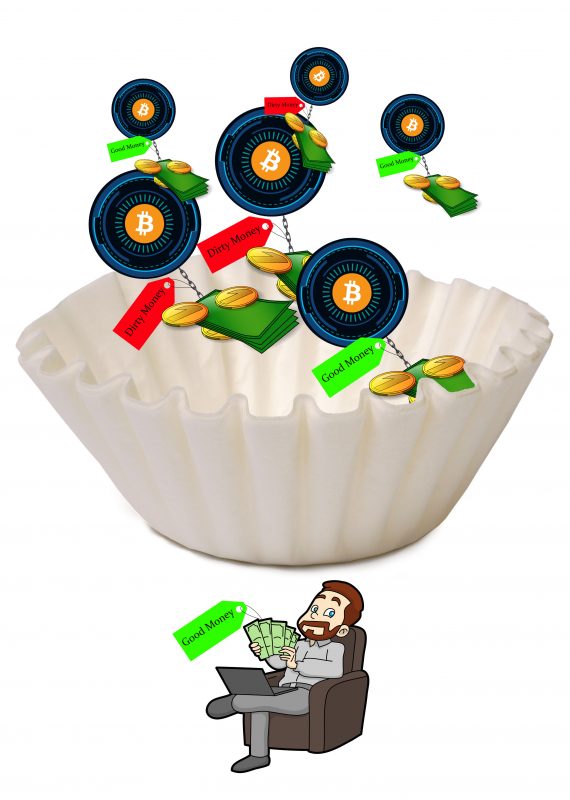
The internet is flooded with contemplations, broodings, and cogitations on Blockchain. One of the possible uses of this technology, Bitcoins and its ilk, has been the reverie, prayer, and speculation engine for endless get rich schemes and the constant fodder for media rumination.
But what is it really?
The direct answer is that Blockchain is just a digital form of trust. Allow me to walk you through it.
Trust has always been the foundation of any society. Early on, when social groups were numbered in low dozens and basically consisted of associations of family members, trust was the currency among the members. You can trust your father-in-law because the survival of his grandkids was in his interest as much as your own, presumably. If a member of the family strayed, everyone knew about and punished the transgression accordingly, including by removing personal trust.
But once the social groups grew in size, trust was more difficult to establish — who could remember who did what and to whom? To supplement trust born of personal knowledge, institutional trust was invented: laws, banks, governments, … and of course religious institutions. It no longer mattered if you were not familiar with a stranger, you put your trust into social norms of the society you lived in to ensure that you got paid for your labor and your property protected from individuals stronger than you were who might want to simply take it.
But there’s a price for such institutional trust — paying taxes for enforcement, giving up some personal freedoms for safety, and hoping that the rest works out. On the whole, this works okay as long as the governmental institutions are honest… but so many instances that’s a problem and the citizens lose trust in their government.
So if we can’t rely on institutional trust, what else can we do? Blockchain is technology developed to solve this problem. Without going into the technical details (they are not too relevant to my account here), Blockchain creates records and tracks them across time, space, individuals, and products. To understand what this kind of trust would look and feel like in the real world, I came up with a few examples of its main features.
Escrow
When we make big purchases, we solve the trust gap between the buyer and a seller by inserting a third agreed upon trusted party — an escrow agent. The agent holds the money, verifying that the buyer has enough money to cover the agreed upon price, and then transfers that money to the seller once that seller releases the product to the buyer. For a split second, neither the buyer nor the seller has the money nor the product! But as a society, we agreed that we would all feel better if we have a trusted referee in the middle of all our big transactions. Such referees spend a lot of their capital building and marketing their trustfulness.

Blockchain can take up the part of the escrow agent and ensure the trust verification between two parties via software. The money doesn’t get released until the buyer receives the purchase, and the seller the agreed-upon price. And unlike a human or corporation, Blockchain can’t be tampered with or emotionally influenced to change the outcome of the transaction without the agreement of both parties. Thus effectively, Blockchain software can remove the middleman from the transaction, large or small. All those purchases on eBay and Craigslist become ever so much safer…
History: Chain of Title
There is another service that is necessary when making large (or even small) investments and that title companies provide — they generate a chain of title. The chain of title provides the entire history of ownership of a particular piece of property. And title companies then guarantee that no other party can claim ownership of the property you want to buy. This requires historical research and getting a title insurance if by chance there were errors in the records.
Blockchain, on the other hand, is all about chain of custody — it keeps a record of every transaction. Each transaction is hardcoded into every subsequent one. Blockchain naturally does what title companies do, and it does it for EVERY transaction, not just the big purchases.

Currently, as a society, we don’t utilize the chain of custody research on a wide scale because it is too expensive. So it is easy to buy a stolen bicycle, for example. That’s also true for jewelry. In fact, any small valuables that can be relatively easily snatched are sold on various online and offline marketplaces. It takes a lot of time and energy to verify if the goods for sale are NOT stolen but represent a legitimate sale.
Blockchain attached to goods sales would make it easy. Is this a legitimate bike sale or not? Check its Blockchain chain of title to be sure. Each transaction is dutifully recorded and available for review.
Blockchain allows the buyer to trust that they are not buying stolen goods, for example.
Tag
So far escrow and chain of custody features of Blockchain are something that have the equivalents in the world as it is now. We solved these issues of trust with institutions and laws (if you find out that the bike for sale is stolen, you can report it to the police and hopefully they would do something about it). But Blockchain can also do things that are not just difficult but practically impossible to do using the social tools we have now.
One such feature is tagging. The chain of custody feature flags bad actors but it doesn’t keep track of the money they made off their evil deeds. But Blockchain can! Blockchain can tag bad money! Let’s imagine that some evil dudes sold drugs or were paid by Putin to rig an election in US, Blockchain can identify the history of dirty money (that’s what it’s good at) and then notify the parties about to engage in a transaction that the money being for this purchase is dirty. This would have a huge implication of how business is done. Anyone or any company or institution would be able to effectively ban itself from engaging in shady deals.

Filter: Accountablity
And finally filtering — a combination of historical records of all transactions and tagging allows for filtering. Imagine if you can always tell if the person you are trying to do business with is engaging in money laundering? Or if the senator or congressman from your district is taking money from tobacco lobbyists or dirty coal industrialists? You can know and vote them out. For the first time, we as regular citizens could hold each other and our institutions accountable. We could use social pressure to clean and rid of our politicians who engage in unethical behavior…at least in a limited, money-focused way.
That’s the power of Blockchain — trust at multiple levels of social interactions.

